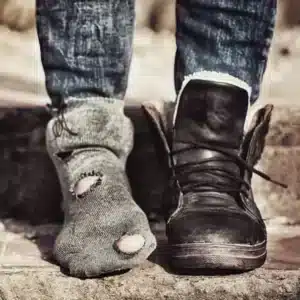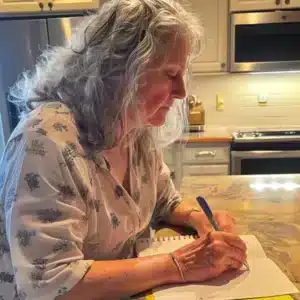I have two daughters. Emily, who’s ten, is from my first marriage. She’s thoughtful, gentle, always trying to do the right thing. Then there’s Zoe, four years old, my little whirlwind from my marriage to Matt. Matt loves both girls deeply, but his mother, Sharon, has never treated them equally.
Sharon hides her cruelty behind polished smiles and spotless countertops. To outsiders, she looks gracious. But I saw the subtle digs, the way her warmth never extended to Emily. Emily wasn’t her “real” granddaughter, and Sharon made sure she knew it. Small comments chipped away at her—ignoring birthdays, showering Zoe with gifts while Emily sat quietly, shrinking into herself. Matt, ever hopeful, said his mother would “come around.” But years passed, and she never did.
When my own mother died suddenly, my grief consumed me. We had to travel out of state for the funeral, and in my haze, I let Sharon watch the girls. I knew it was a mistake. My gut screamed at me, but I was too broken to fight it.
When we came home three days later, Zoe was gone with Sharon to the park. The note on the counter explained it. But where was Emily? The house was silent. Too silent. Then I saw the faint glow from the basement window.
No one used the basement. It was damp, cluttered, and smelled of mildew. My chest tightened as I opened the door and crept down the stairs, my phone’s flashlight trembling in my hand.
And there she was. My Emily, curled beneath the stairs, asleep on a cement floor with only a blanket. Her cheeks were streaked with dried tears. She stirred when I whispered her name, blinking up at me. “Grandma said this is my room,” she murmured. “She said Zoe’s her real granddaughter, and I shouldn’t be in the way.”
I thought my heart might break apart in that moment. She told me Sharon hadn’t let her eat dinner with them, that she was told to stay in the basement unless she needed the bathroom. My daughter had been exiled in her own home, treated like she was disposable.
I held her tightly and promised her it would never happen again. But I didn’t confront Sharon then. Not yet. When Sharon returned later with Zoe, I smiled, thanked her, and then baited the hook. I offered to help her plan the family reunion she was so proud of, the highlight of her year. She was delighted, oblivious to the storm I was preparing.
For weeks, I worked alongside her, all the while dropping quiet truths to relatives. “Emily’s been struggling, especially after Sharon had her sleep in the basement during our trip.” Whispers spread. Shock turned into murmurs. The ground beneath Sharon was already shifting.
At the reunion, her backyard gleamed with perfection—fine china, curated centerpieces, tables draped in linens. She basked in the admiration as guests arrived. Then came the slideshow I had prepared. It began with family moments—Emily and Zoe baking, playing, laughing together. But then the images shifted. Emily asleep on the cold basement floor. Her tear-streaked face. The blanket.
Gasps rippled through the crowd. “Is that the basement?” “Why would she be down there?” All eyes turned to Sharon. She stammered, insisting it was just a game, that Emily wanted to camp downstairs. No one believed her. The room of smiling admirers became a jury, and she stood guilty, stripped of her carefully maintained mask.
I didn’t raise my voice. I didn’t need to. The truth spoke louder than anger ever could. Relatives walked away from her. Emily received reassuring smiles and gentle squeezes on her shoulder. Sharon’s social throne crumbled beneath her feet.
She hasn’t spoken to me since that day, and I’m perfectly fine with that. Emily knows now what I swore to her that night: she will never be cast aside again. Sharon thought silence made me weak. But when it comes to my children, my silence is the warning before the reckoning.





